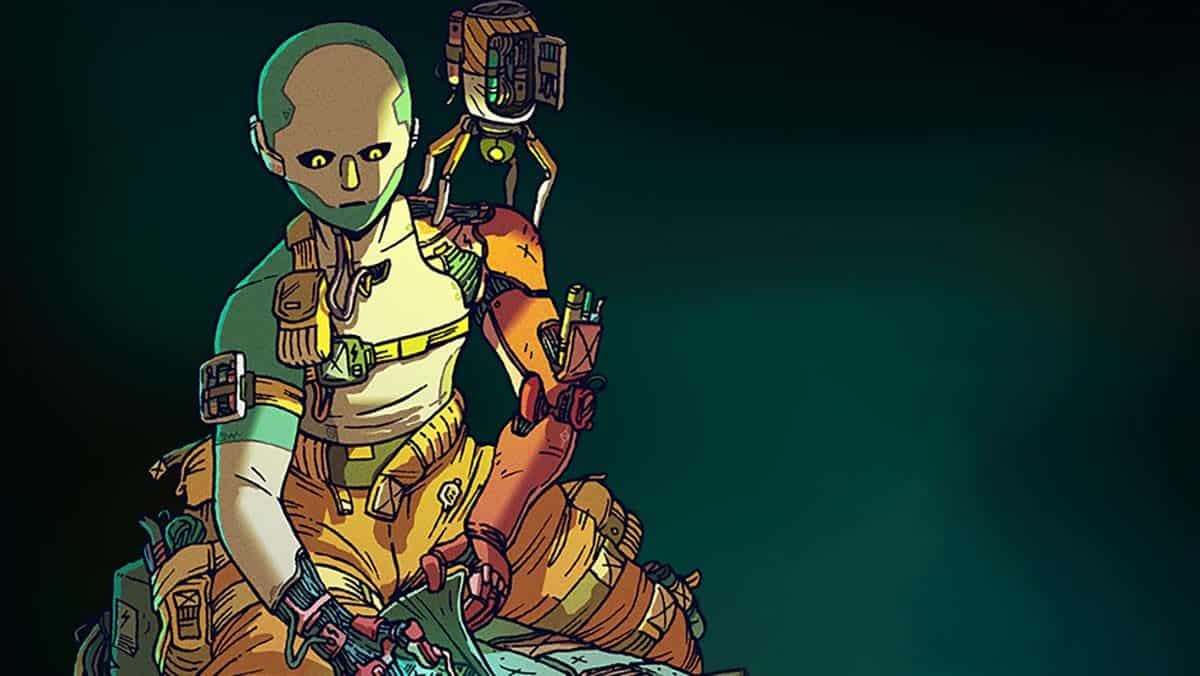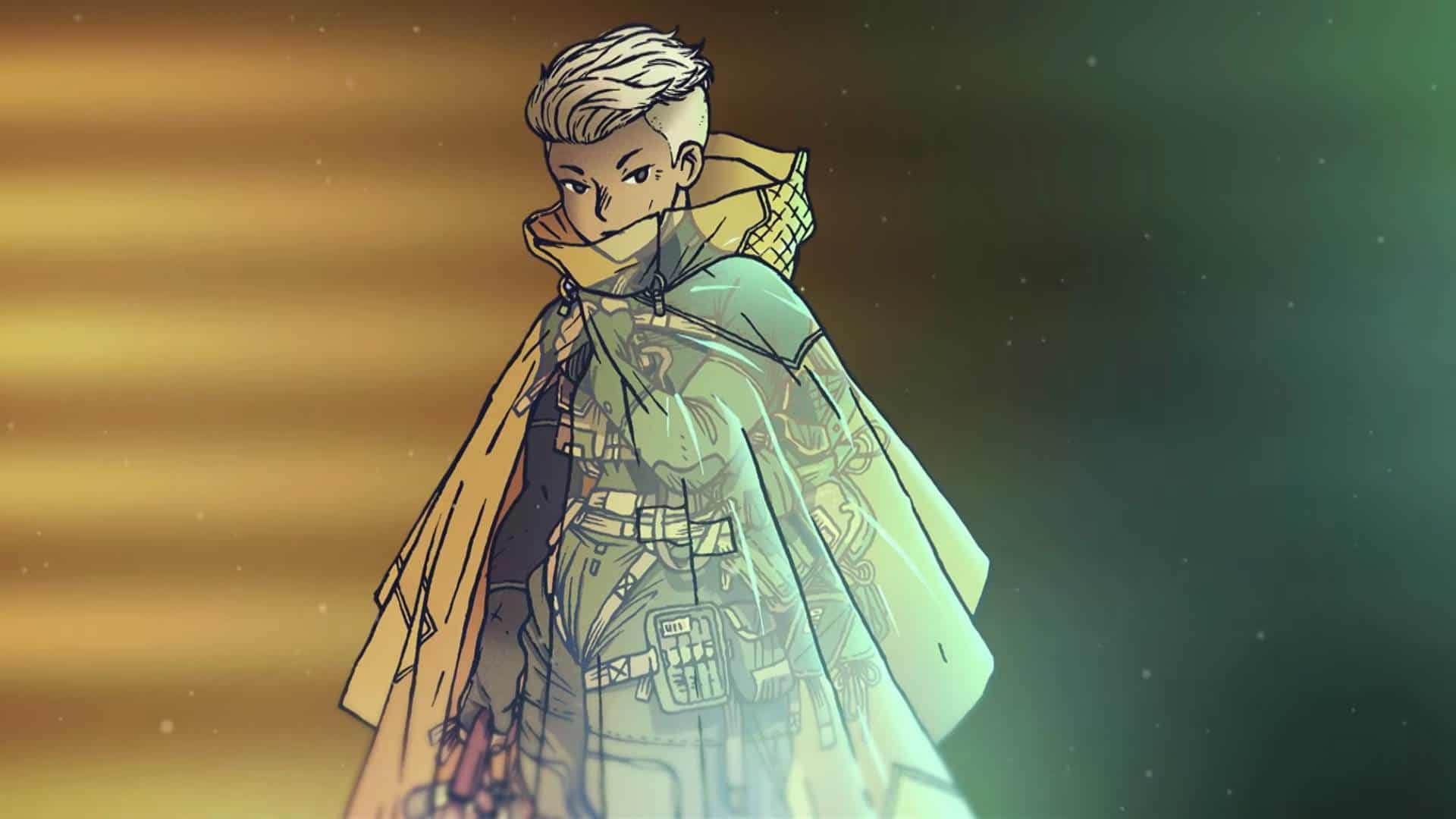The protagonist of Citizen Sleeper lives and operates on a broad room station. Except they really do not. They are, in reality, elsewhere. Sleeping. A copy of their consciousness has been set up in a “frame”: a synthetic humanoid, composed of metal and wiring—and technically owned by a corporation—to whom folks refer as a Sleeper. As a result, the title is at as soon as a declaration and a sly probing of a predicament: is our sleeper any significantly less a citizen for the deficiency of an authentic entire body? Are we all not living on borrowed time, if not borrowed house? And how much of remaining a citizen actually entails becoming awake?
The station is named the Eye, and, however we do capture occasional violence on its streets, the location is barely as bloodshot as Night time Town, from Cyberpunk 2077. Although it does have a similar techno-bustle. Inspite of its title, it much more closely resembles the wheel of a bicycle—circular, equipped with spokes, and thoroughly tired. The Eye is a ruin, tumbling from the hands of various companies and thence into disrepair. People that dwell and thrive on its curvature do so in the expertise that their times are precarious. Irrespective of whether by mechanical or ethical malfunction, it could all slide in a blink. You get the sense that existence in this article has sprang up and spread amid the breakage of an old buy, like moss furring the cracks of a derelict church. But the old order is still hanging close to. A spectre is haunting the Eye—the spectre of capitalism.
If you have just assumed the brace posture, fearing the mind-numbing turbulence of a lecture, I never blame you. There are characters, in Citizen Sleeper, that roll up and commonly declaim their wisdom: “As considerably as I’m concerned, individuals ought to be the ones jogging the systems, not the other way about,” someone suggests. And at one particular point your character feels “A longing to be carried. Not by the units that spin the suns, or the firms that run the colonies. But by love.” Give me a break. But so, too, do we get Hardin, a gray-haired honcho with a felony background, who presents a gruff rebuff: “It took perform, diplomacy and power to halt the Eye descending into chaos,” he states. “Not blind conviction or self-desire.” In times like this, the solution of the game’s writer, Gareth Damian Martin (who is also credited as its creator and designer), requires on a additional discursive air.
More than anything, Martin cares to give us texture. The drama and the motion unfold in prose, and it is the type that prods at your senses extra than your conscience. I significantly relished the funky pressure of eco-fi that we get, as we glimpse a application “releasing its details like ink in drinking water,” and as we view an A.I. setting up a fresh update, pressing it “down into the loam of knowledge beneath them.” Who knew that the pleasures of programming are rooted in those people of the inexperienced thumb, that facts is there to be planted and pruned? Granted, we’ve all ventured onto Twitter and felt totally dirty, but this is different. Martin has brought fecundity to software program and, even though some passages could do with a tiny weeding, the prevailing mood is both of those lush and lonely, like a walled yard.

In addition, if you like that, wait around until eventually you get to the food—to the oiled woks, the “thick chunks of marinated fungus,” the “sliced vegetables in some purple-flecked dressing,” all of it “rich, spicy, delicately sweet.” When was the previous time a game tempted you into purchasing takeout? The a person dishing up the feast is Emphis, a avenue vendor who could have stepped straight from the backgrounds of Blade Runner, with their steaming noodles and interminable rain. Emphis’s arms are ringed with curious scars, and, in a person scene, we trace them to a dark backstory. Emphis, we are told, was the moment grafted on to a device, referred to as a “Bonesuit,” (shades of the Skull Go well with, from Metallic Gear Strong 2: Sons of Liberty) for the reasons of robo-boosted labour but it’s the artwork, by Guillaume Singelin, that does the weighty lifting listed here. Emphis is laughably saddled with equipment—pans, bottles, baggage stuffed with utensils, plastic trays bearing mushrooms. He is the spit of Norman Reedus, in Demise Stranding, Hideo Kojima’s analyze of baggage-loaded bodies. Singelin’s model is akin to that of Yoji Shinkawa—who partnered with Kojima for that game, and several others—albeit extra cleanly drawn, and clouded with the dreamy hues of Jean Giraud.
Together with Emphis, we also get Riko, a kindly aged woman with a crutch, who dwells in the Greenway, a verdant belt from whence the station, presumably, attracts its oxygen. There she plies her botanical skills, breeding and brewing all way of concoction, and operates the Hypha commune, in which the hippies go, rent-free of charge, to concentrate on their particular expansion. Then we have Tala, who operates at the Forget about bar, an unstilled soul who yearns to elevate her spirits by earning whiskey, and rebranding the establishment. And Bliss, a mechanic who floats and tinkers in zero gravity, itching to be reduce adrift from the Eye. What Martin is executing, in quick, is assembling the seethers: individuals floor-amount extras that throng the cyberpunk style, commonly lending guidance to a Harrison Ford-like hunk.
As if to drive the place property, together will come Ethan, a bounty hunter with a shoulder holster, a shock of blonde hair, and a mud-brown jacket. Normally, he is (1) handsome, (2) a bastard, and (3) soon after you—or, at the very least, after the dollars that he will internet for your body, the greater to glug himself into a stupor. He is, in other words and phrases, a reshuffled and fifty percent-minimize Deckard, and a stark reminder that, of all the people here, none would be far more secondary, in a traditional tale, than you. And even right here you are hardly a hero. Real, you get to make alternatives important selections and dialogue alternatives are there for the clicking, but the success of most of your steps is carried not by the devices that spin the suns, nor by the businesses that run the colonies, and however significantly less by love, but by that most loaded of cosmic forces: luck.

Just about every day—or “cycle,” as they are called—you are dealt six dice. These are fed into different pursuits all the things from sawing through weary hulls in a salvage yard to participating in a activity of tavla (a form of backgammon analogue) is ruled by whichever die you press into a slot. Jewel it with a six, and you are very likely to enjoy bountiful benefits jab a a single or a two into the hard work, and you may possibly reduce or, worse, appear away with your electrical power sapped. This is replenished, easily more than enough, with foods, but your Sleeper suffers a deeper malady. Essen-Arp, the company that considers you minor far more than missing devices, has bestowed on you a “planned obsolescence”—an insurance policy coverage of sorts, which turns your firmware friable. For that reason, you call for typical doses of stabilising medicine, which do not appear inexpensive. As we are educated by Sabine, a physician who sports a poncho of translucent-yellow plastic, as while shielded from an ever-present downpour, “Nothing arrives absolutely free Sleeper, recall that.”
Without a doubt, and not the the very least surprising matter about Citizen Sleeper is that its sights and smells do not get there at the price of enjoyment. The styles of its play—doing careers for income, serving to some others, finishing quests—have the rhythm of get the job done, but they are delivered, by means of a string of computerish interfaces, with beeping abstraction. Your toils are not your own. A couple a long time back, I spoke to Martin, who said, “We are used to getting the ‘body’ in a game—the 1 who opens doorways, fights enemies, bodily explores areas. . . . I required to come across a distinct language to the typical immediate avatar management and actual physical interactions of a match. That was when I turned to the idea of a personal computer interface.”
The matter of our conversation was Martin’s debut, In Other Waters, a sport established in an alien ocean, of which we by no means see a fall. We believe the role of an A.I., plugged into the diving go well with of a xenobiologist, and we see the earth by the swish and swirl of its emanations. “To me there is anything wonderful about the abstraction that is doable with interfaces,” said Martin, “the way they can stand for worlds via data, alerts, and methods.” Much of the electric power of Citizen Sleeper flows from that game’s singular premise. Both equally share a composer, in Amos Roddy, whose score is rich in susurrations and synth. And both of those ache with the travel to escape. That’s why the hacking ability that your Sleeper discovers, which casts the station in a snowy haze this ghost environment, we are explained to, curls through the physical realm “like smoke through air.” When, later on on, one particular quest presents the prospect to depart your frame driving and slip permanently into this formless aircraft, it’s a second of breathless probability but you just cannot assist questioning from what personal depths this sort of passages ought to have emerged. Machines, bodies, persons, interfaces, souls: with Citizen Sleeper, Martin’s elusive themes pass—like ink in drinking water, like smoke as a result of air—into the great body, and access a thrilling consummation. But nothing will come cost-free.

